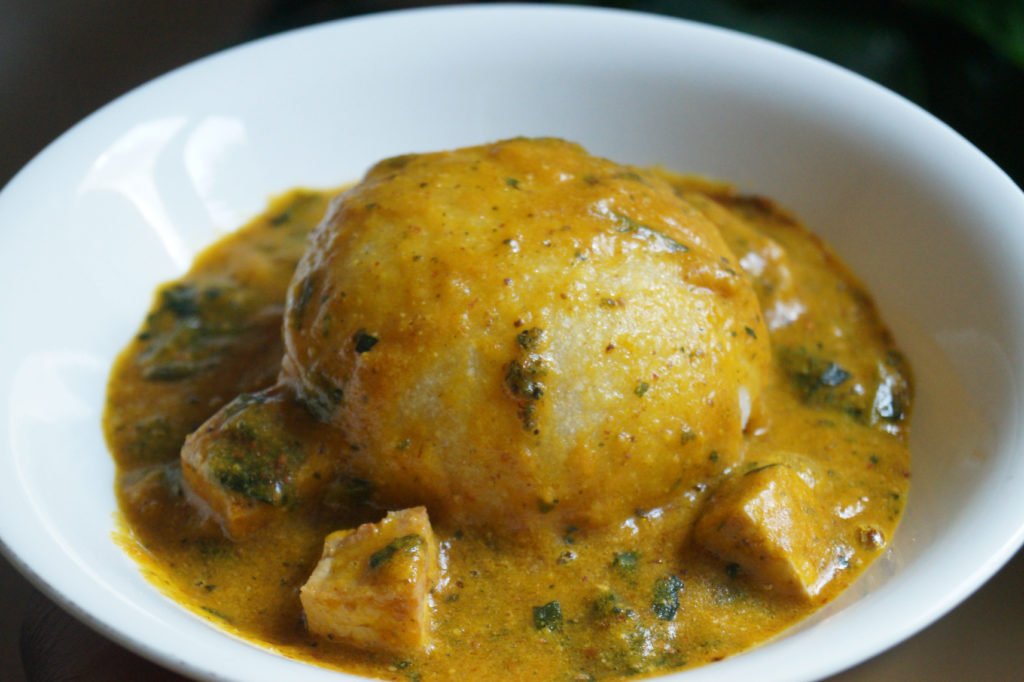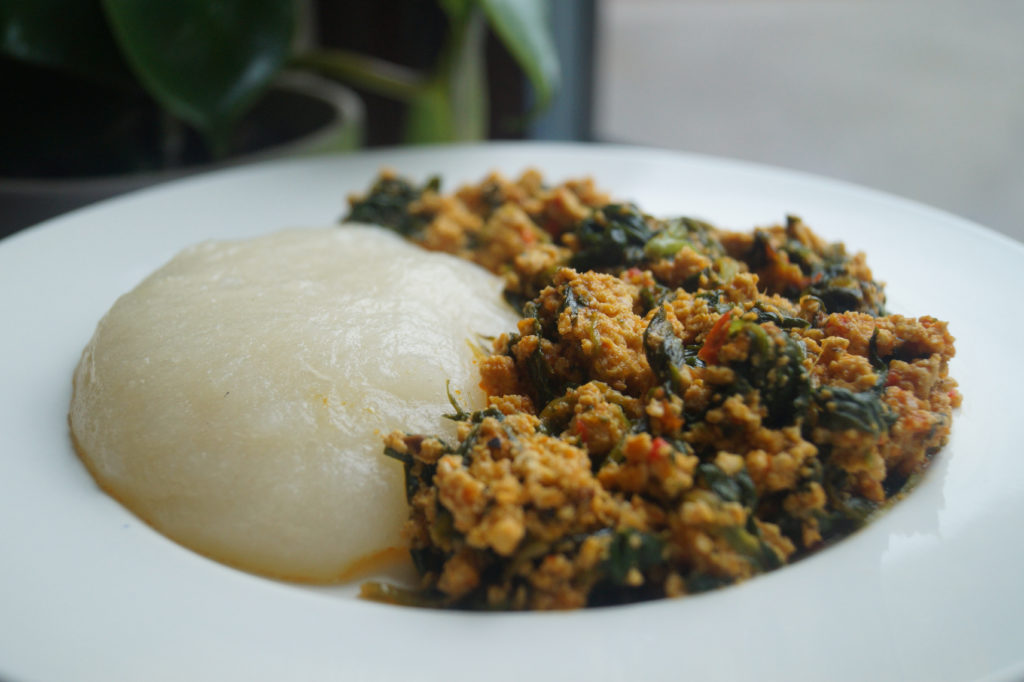4 Mins Read
Nigerian food takes you on a journey. The combination of earthy, wholesome ingredients and piquant flavourful spices has the power to transport you, particularly away from a grey day in the U.K. capital. Classics like Jollof Rice and Àkàrà are both supremely comforting and enticingly enriching. Blogger and chef Tomi Makanjoula knows a thing or two about matching grey days with colourful flavors thanks to her Nigerian-British heritage, London life and love of cooking. In her new book, Vegan Nigerian Kitchen, she takes classic dishes from “the giant of Africa” and gives them new plant-based verve.
The book features 100 of Makanjuola’s favourite recipes, spanning the breadth of Nigerian cuisine. Alongside cooking instructions, she aims to educate readers about staple ingredients and a variety of cooking methods. Suitable for cooks of all experience levels, the book acts as a warm embrace for existing lovers of Nigerian food and an unforgettable introduction for everyone else.

About Tomi Makanjuola
Born and raised in Lagos, Nigeria, Makanjuola moved to the U.K. as a teenager. During a year in France, she made the switch to a vegan lifestyle, citing both ethical and health reasons for the move. It’s a decision that has shaped her life ever since, as she founded her blog, The Vegan Nigerian, around the same time.
Using her platform to maintain close connections with her Nigerian roots, Makanjuola began showcasing the country’s cuisine, while exploring veganism. Fresh after graduation from Oxford University, she began working as a chef in London, while hosting her own vegan Nigerian pop-up events. Her online presence has continued to grow, leading to publication of Plantain Cookbook and now, Vegan Nigerian Kitchen.
“It has been a pleasure to put these recipes together, drawing on the traditional Yoruba meals I grew up eating and loving, but also pushing myself to include dishes from other tribes across Nigeria,” Makanjuola says. “My hope is that this cookbook will be a worthy starting point for you to try some of the best of what we have. I hope it gives you the grounding and confidence to delve fully into the beautiful world of Nigerian cuisine…vegan style!”

Embracing the new
Anyone new to Nigerian cooking is in for a treat. Already plant-based dishes, such as Asaro (a porridge made from yams that pairs with almost anything) meet newly vegan classics, including Egusi Soup (see below for recipe). Each page pays tribute to a pocket of Nigerian culture and envelops the reader in a world of sensory enlightenment and personal memoirs. The snacks featured are particularly moreish. Gala Sausage Rolls, Meatless Pie, Kuli Kuli, Coconut Candy and an all-time favourite, Masa, will never fail to make raise eyebrows and fill stomachs.
Designed to help encourage a newfound appreciation for one of the world’s most diverse and rich cuisines, Vegan Nigerian Kitchen takes on a multifaceted role. Cooking instructions are clear, background context to the meals is undeniably helpful and shopping tips are very appreciated. By the end of this book, readers will feel comfortable enough to start experimenting with flavour profiles on their own and have a new bank of staple go-to dishes that they revisit time regularly.

Recipe To Try: Efo Egusi
Chef Tomi’s Notes: Efo egusi (also called egusi soup) is the most popular dish amongst the Ijesha people of Osun state (my hometown), where it is eaten alongside a variety of starches such as pounded yam, eba, fufu or even rice. Growing up, this was a staple in our household. The key ingredients are leafy greens, palm oil and ground egusi (melon seeds). The traditional recipe calls for meat to be added, but you can use any meat substitute such as mushrooms, tofu or diced aubergine.
Ingredients
- 1 red bell pepper
- 2 large tomatoes
- 1 scotch bonnet pepper
- 1 red onion
- 2 tbsp palm oil (can be substituted with a neutral alternative if you are palm oil-free)
- Salt to taste
- 1 cup liquid vegetable stock
- 1 cup ground egusi
- 5-6 cups chopped spinach
- 2 cups chopped mushrooms or other meat alternative
Directions
- Start by blending the peppers, tomatoes and onion with 3/4 cup of water until smooth.
- Heat the oil in a large pot and add the blended mixture. Season with salt and cook uncovered on medium heat for 10 minutes. Add the vegetable stock and sprinkle the ground egusi over the top. Cover and simmer on medium-low heat for 15 minutes. The egusi should cake and form little air pockets on top.
- Add the chopped spinach and mushrooms, mix well and cook uncovered over medium-high heat for a further 5 minutes.
- Serve and enjoy!
Buy the book: Vegan Nigerian Kitchen, independently published, 2021 (GBP 18.33)
All photos courtesy of Tomi Makanjuola.




